How we earn our money
We finance our services on how-to-germany.com through affiliate programs.
When a user orders a financial product through our site and their application is approved, we may receive a commission from some providers. It’s important to note that this does not in any way influence our independent ratings and recommendations.
All the products we present on how-to-germany.com are selected for their quality, range of services, and excellent value for money.
Best Travel Credit Cards in Germany
- Travel credit cards help reduce foreign transaction fees, offer insurance, and provide flexible payment options while abroad.
- Free credit cards, such as Barclays Visa or TF Bank Gold, often include no foreign transaction fees and travel insurance.
- Premium cards (e.g., Amex Platinum, Barclays Platinum Double) offer lounge access, extensive insurance, and VIP perks.
- However, some mid-range and free credit cards also offer attractive travel benefits such as insurance and bonus programs.
- Some debit cards (N26, Revolut, Trade Republic) are suitable alternatives with real-time spending control and low fees.
- Watch for hidden costs, such as ATM and foreign currency fees, or insurance conditions tied to card usage. If you carry a balance on a revolving credit card, you may have to pay interest of 20% or more on your outstanding debt.
- Matching your card to your travel profile and spending habits is key. Frequent travelers benefit most from premium features and rewards.
What Makes a Credit Card a Travel Card?
A travel credit card is designed to support you during international trips — whether for business, leisure, or long-term stays abroad. The most important features include no foreign transaction fees, free cash withdrawals worldwide, travel insurance, and reward programs specifically designed for frequent travelers.
Unlike regular credit cards, travel cards typically offer added value when booking flights, hotels, or rental cars, along with protection for delays, baggage issues, or medical emergencies. These perks can help save money and reduce risk while traveling.
Visa, Mastercard, and American Express cards are widely accepted across Europe and internationally, ensuring access to payments wherever you go.
However, you don’t always need a premium card to benefit from solid travel features. Some free credit cards in Germany — such as the Barclays Visa, TF Bank Mastercard Gold, or Advanzia No-Fee Mastercard Gold — offer surprisingly strong travel benefits, such as worldwide free cash withdrawals, no foreign currency fees, and basic travel insurance. These options provide excellent value without annual fees, making them ideal for occasional travelers or those new to Germany.
However, premium and mid-range travel credit cards usually offer a broader set of features, including VIP lounge access at airports, comprehensive insurance packages, status upgrades, and exclusive travel discounts.
Co-branded airline and hotel cards are issued in partnership with specific travel brands (e.g., Lufthansa, Hilton); these cards offer points or miles, upgrades, or exclusive member benefits. Premium travel cards offer the most extensive benefits, including airport lounge access, luxury insurance coverage, concierge services, and elevated reward rates, typically accompanied by a significant annual fee. The American Express Gold and Platinum Cards are prime examples, offering high-end benefits tailored to frequent flyers and luxury travelers.
Types of Travel Credit Cards in Germany
Germany offers a wide range of travel credit cards — from simple no-fee options to fully equipped premium products. These are the main categories:
- Charge cards
Provide a short-term credit line with full repayment each month and without interest if paid on time. Some come with basic insurance and travel perks. You get your credit card statement monthly. Depending on your provider, you have to pay your credit card bill every 30 days or within an extended payment period. - Revolving credit cards
Allow to borrow money for a longer period, with flexible monthly repayments or within an interest-free grace period up to 60 days. These German credit cards are ideal for travelers who prefer a longer repayment horizon, although high interest may apply to unpaid balances. Revolving credit cards are suitable for flexible monthly payments, but always check the interest rates for unpaid balances. - Modern debit cards, unlike charge and revolving credit cards, do not provide a credit line. Payments are deducted via direct debit from the linked bank account. They can also serve as a solid alternative for travel, especially for expats and digital nomads. Providers like Trade Republic, N26, and Revolut offer travel debit cards that include no foreign transaction fees, free ATM withdrawals, real-time payment control, and user-friendly banking apps. The 2 premium Mastercards from N26 (N26 Go and Metal) are particularly excellent travel companions, offering travel insurance and other benefits.
Prepaid credit cards play a very minor role in Germany’s travel credit card landscape. They require you to top up funds in advance and do not offer overdraft flexibility. Many travel-related services, including flight bookings, car rentals, and hotel reservations, do not accept prepaid cards due to a lack of credit verification or deposit security. Additionally, most prepaid cards charge an annual or monthly fee and offer no travel benefits such as insurance or lounge access. While prepaid cards may work for everyday payments, they are not recommended for international travel or bookings. A debit or true credit card is usually a better choice.
Who Benefits Most from Travel Credit Cards?
Travel credit cards are particularly useful for:
- Expats
Living abroad means frequent transactions in different currencies. A travel card can reduce costs and offer peace of mind when visiting your home country or exploring Europe. - Business travelers
Flight delays, lost luggage, and international expenses are common; travel cards can help cover these risks, providing flexibility and insurance protection. - Frequent vacationers
For those who fly multiple times a year or plan trips abroad regularly, the perks of a travel credit card can add up quickly, from no foreign transaction fees to cash back and free upgrades. - Digital nomads
For remote workers who frequently change locations, a travel card provides financial flexibility, secure access to cash, and seamless payments across borders.
Good Travel Credit Cards — What to Watch Out For
Annual Fees
Premium travel credit cards can cost anywhere from €100 to €700 per year. However, you will also find cards in the mid-price range and offers with no basic fee, which are ideal for travel credit cards.
While expensive cards often come with VIP perks like airport lounge access, travel upgrades, and premium insurance, the annual fee only pays off if you use those benefits. If you travel occasionally, a completely free credit card with basic travel perks, such as the Barclays Visa Credit Card or the Hanseatic Bank GenialCard, may be a more cost-effective option.
Some free credit cards with no annual fee, such as the TF Bank Mastercard Gold or the Advanzia Bank No-Fee Mastercard Gold, still offer extensive additional services. The same applies to mid-range cards such as the Hanseatic Bank GoldCard, which also provides very good terms and conditions and various premium services. They can therefore be an excellent choice for cost-conscious frequent travelers.
Cash Withdrawal Fees
Many cards allow making cash withdrawals free of charge. These cards are mainly free credit cards and cards in the mid-price segment. In the premium segment, Barclays Platinum Double, for example, offers you this advantage.,
Some providers advertise “free cash withdrawals,” but may limit this benefit to specific regions or impose minimum withdrawal amounts (e.g., €100) to support cost-free transactions. Others allow only a few free withdrawals per month. Always check the conditions to avoid surprise fees abroad.
In addition to the credit card company’s fees for withdrawing cash, the ATM operator may also charge extra fees.
With some travel credit cards, you may withdraw money internationally for free. However, the credit card company charges fees for ATM use within Germany or the Eurozone. Others allow only a limited number of free withdrawals per month, regardless of location. If you plan to use your card frequently for domestic ATM transactions, check whether the provider includes Germany and the Euro countries in its free withdrawal policy.
Currency Conversion Fees
Currency conversion fees apply when you withdraw cash or pay in a foreign currency — for example, when booking hotels in USD or shopping in GBP while abroad. Some cards charge up to 3% per transaction. A good travel card should waive these fees entirely. Of course, such cards with no foreign transaction fees are especially attractive for international travelers.
These cards are also mainly found as free credit cards or in the mid-price segment. However, some premium products also offer this benefit.
Thanks to their extensive and high-quality additional services, American Express cards are also considered excellent travel cards. However, please note that cash withdrawals and international card payments with American Express (Amex) cards are always subject to fees, which can add up to significant costs if used frequently.
Travel Insurance Benefits
Many credit cards suitable for travel purposes come with various types of travel insurance. Specifically, these include:
- Travel medical insurance
- Trip cancellation/interruption insurance
- Flight delay and baggage insurance
- Transport accident insurance
- Rental car insurance
The insurance coverage offered by different cards can vary greatly. Premium cards, such as the American Express Gold and Platinum credit cards or the Barclays Platinum Double, provide particularly comprehensive insurance benefits. However, mid-range cards, such as the Barclays Gold Visa, and some free credit cards, including the TF Bank Mastercard Gold and Advanzia Bank No-Fee Mastercard Gold, also offer excellent insurance packages. The N26 Bank has equipped its premium debit Mastercards (N26 Go and N26 Metal) with comprehensive insurance and other travel benefits.
Some travel credit cards, such as the awa7 Visa Credit Card from Hanseatic Bank, offer the option of adding travel insurance and other insurance services for an additional fee.
However, it is essential to read the fine print when purchasing travel insurance through a credit card. The insurance often only applies if the trip or rental car was paid for with the card. Exceptions apply, for example, to American Express Platinum and Barclays Platinum Double, where insurance benefits are not linked to card payments. In addition, family members traveling with the cardholder are also covered. The insurance coverage of the N26 premium debit cards also applies without card payment, but only the cardholder is insured.
Additional Benefits
Many travel credit cards offer attractive additional services – premium cards are at the forefront of these offerings. These may include the following travel benefits:
- Discounts and status updates for travel, hotel, and car rental bookings
- Discounted or free access to airport lounges
- Travel concierge service
- Travel and emergency service
Cashback and bonus programs
Some cards also offer cashback or bonus points for online shopping and cashless in-store payments, adding value beyond travel benefits.
Attractive bonus programs are available, for example, with American Express cards and credit cards from Hanseatic Bank (GenialCard, GoldCard, awa7).
American Express credit cards, the Miles & More Visa Credit Cards from DKB (Blue, Gold, each also available in a business version), and the Barclays Eurowings Visa cards (Classic, Premium) are attractive options for collecting miles. You can use the miles you collect for flights, hotel bookings, status upgrades, and other rewards.
Especially some co-branded cards (e.g., airline or hotel cards) require high monthly spending to unlock full rewards. Others cap the number of points you can earn per year. If you travel only occasionally, this may reduce the value of the rewards system. Compare whether you’ll realistically benefit from point-based perks.
Credit cards with cashback on card payments are not always the best option for frequent travelers. Many of these cards are explicitly aimed at frequent shoppers by credit card providers. In contrast, cards such as the American Express Payback Card or the Payback Visa Card offer hardly any travel benefits. The Trade Republic Visa Debit Card may be of interest to travelers who do not necessarily need a card with a credit function, as it offers favorable terms for worldwide use and an attractive cashback option.
Premium Travel Credit Cards – Ideal for Frequent Travelers
If you travel often, investing in a premium travel credit card can be well worth it. While these cards typically come with higher annual fees, they offer extensive travel-related benefits that go far beyond those of standard cards.
One of the most prestigious options on the market is the American Express Platinum Card, which costs €720 per year. It features what independent reviews consistently call the best travel insurance package in Germany. Additional perks include airport lounge access at over 1,400 locations worldwide, hotel and rental car status upgrades, a complimentary supplementary card, generous lifestyle and travel credits, and access to the American Express Membership Rewards program. Frequent travelers also benefit from exclusive partner offers and substantial discounts through Amex Offers.
Even more exclusive is the American Express Centurion Card, often referred to as the “Black Amex Card.” This invitation-only card is reserved for high-net-worth individuals with exceptional credit ratings. It offers personalized concierge services, unmatched travel privileges, and elite status across global hotel and airline partners. The Centurion is not publicly available and is considered one of the most prestigious credit cards worldwide.
You don’t need to go ultra-premium, though: There are solid premium cards available at a lower price point. Examples include the Barclays Gold Visa Credit Card, the Barclays Platinum Double (a combination of Visa and Mastercard), and the Hanseatic Bank GoldCard. These cards typically offer a balanced package of travel insurance, low or no foreign transaction fees, and additional features for annual fees ranging from €59 to €100.
Whether you’re a frequent flyer, digital nomad, or international business traveler, premium travel cards can significantly enhance your comfort, convenience, and protection while abroad.
Best Travel Credit Cards in Germany — 2025
Numerous banks and financial service providers offer travel credit cards in Germany. Here we present what we consider to be the best recent offers. For an optimal overview, we have categorized the cards by different service aspects, allowing for multiple entries.
Best Free Credit Cards For Travel
These credit cards come with zero annual fees and are ideal for cost-conscious travelers. They can offer excellent value for money, especially if they include additional services such as insurance and allow free payments abroad and within the eurozone (including free cash withdrawals and cashless card transactions). However, when choosing a card, you should always keep an eye on additional costs, particularly interest rates for installment payments. A credit card is only completely free if you can avoid these costs.
Our favorites among the free travel credit cards are:
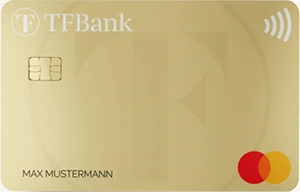
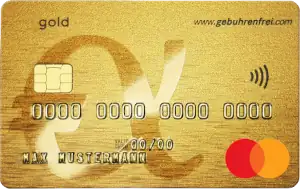
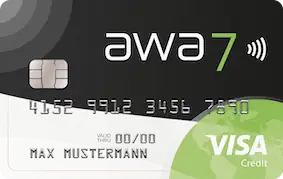
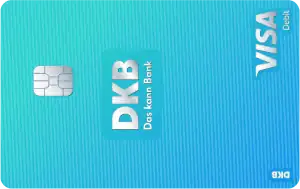
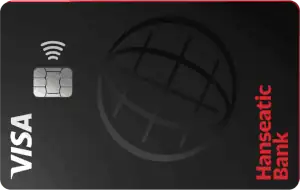
Best Travel Credit Cards Without Transaction Fees
All the above-presented free credit cards support worldwide cash withdrawals and card payments free of charge, without any foreign currency fees. However, you can often also take advantage of free card transactions with cards that incur a basic fee. These include:

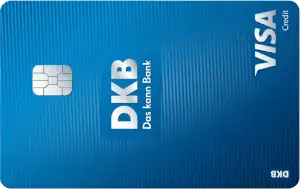
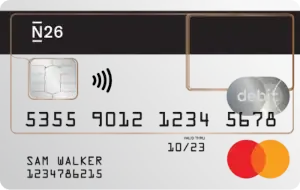

Best Credit Cards with Travel Insurance


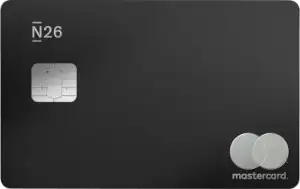

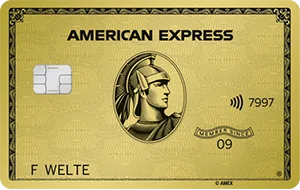
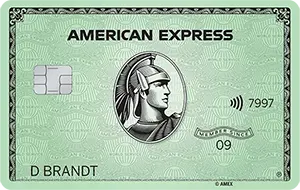

Best Travel Credit Cards with Bonus & Miles Programs





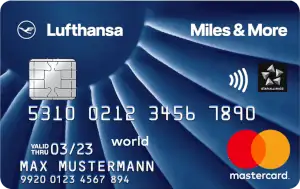
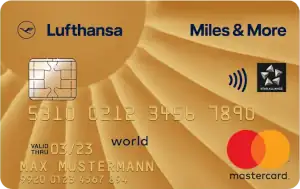


How to Choose the Right Travel Credit Card
To find the best travel credit card for your needs, start by identifying which features are most important to you and what fees you’re willing to accept. A high-priced premium card may be worth it if you regularly use its full benefits. But even free cards can offer great value for certain travel habits. A thorough credit card comparison helps you evaluate fees, benefits, and insurance coverage to find the best match for your needs.
Key Factors to Consider
- Card type: credit card with a credit line – charge card without interest rates or revolving credit card; alternatively, debit card
- Card costs: free vs. annual-fee cards, midrange vs. premium products
- Linked bank account: Some cards require a specific checking account of their provider; for others, you can use any bank account as a reference account.
- Cash withdrawals: free or subject to fees — in Germany and abroad
- Foreign fees: currency conversion fees, exchange rates
- Travel insurance: included coverage and payment conditions
- Additional travel perks & reward programs
Combination of Different Credit Cards
Sometimes, using two cards in combination makes sense. For example, an American Express Gold or Platinum offers premium insurance, lounge access, and excellent reward programs, but charges for foreign payments and ATM withdrawals. Pairing it with a complimentary card, such as the Barclays Visa or TF Bank Mastercard Gold, can help eliminate these fees abroad.
Also, keep in mind that cash withdrawals typically don’t count toward collecting rewards or miles with most providers, so choose your cards strategically.
Conclusion – Is a Travel Credit Card Worth It?
A good travel credit card can be a valuable tool for reducing costs, enhancing comfort, and maintaining financial flexibility while abroad. Whether you’re a frequent flyer, digital nomad, expat, or occasional vacationer, the right card can eliminate foreign fees, provide essential insurance, and unlock travel perks — often at no or low cost.
Free travel credit cards, such as the Barclays Visa, TF Bank Mastercard Gold, or Hanseatic GenialCard, already offer impressive benefits. However, if you travel regularly or want premium services like lounge access, status upgrades, or concierge support, investing in a premium travel card such as the Amex Platinum or Barclays Platinum Double can be well worth the annual fee.
Ultimately, your travel habits, spending profile, and preferred perks will determine which card is the best fit for you. Compare carefully — and don’t hesitate to combine two cards to get the best of both worlds.
Frequently Asked Questions — FAQ
Applying for a travel credit card in Germany is typically a quick process that can be completed entirely online. Most banks and card issuers offer an online application form where you’ll need to enter your personal details, including your name, address, income, and residency status. You will also need to complete an identification process, which can be done regularly through a video call (VideoIdent) or by uploading a valid ID.
A credit check via Schufa is typically required for standard or premium cards. The result of this check can affect whether you’re approved and what credit limit you’re given. For some debit travel cards, no Schufa check is necessary.
Once your application is approved, you’ll receive your card by post. To start using it, you typically need to complete the credit card activation process, which usually involves submitting a one-time code via email, SMS, or through the banking app for your card.
Schufa is Germany’s main credit bureau, tracking your financial behavior — including loans, mobile contracts, and bill payments. When you apply for a credit card, banks use your Schufa report to assess your credit history and calculate a credit score.
A good credit score increases your chances of being approved and receiving a higher credit limit. As a newcomer to Germany, you may have no Schufa record yet, which can limit your options. In this case, it’s often easier to start with a debit or prepaid card and build your credit gradually by making timely payments and avoiding unauthorized overdrafts on your bank account.
Yes, nearly all travel credit cards in Germany support contactless payments, both domestically and internationally. You can tap your card on the terminal for fast, PIN-free purchases — typically up to €50 per transaction. For larger amounts, a PIN or biometric verification is required.
Most cards also support Apple Pay, Google Pay, and sometimes other digital wallets, allowing you to pay via smartphone or smartwatch. This adds another layer of convenience and security. Contactless functionality can usually be activated or deactivated via your banking app.
German travel credit cards offer strong security standards, including chip-and-PIN technology, real-time transaction alerts, and optional biometric login via the banking app. For the cards, apply the Mastercard Identity Check, Visa Secure, or American Express SafeKey — a 2-factor authentication protocol that verifies online payments via biometric or app-based approval.
Contactless payments are also secure. Transactions are encrypted and limited to small amounts (usually up to €50) without requiring a PIN. For added safety, you can manage or turn off the contactless feature through your card’s account banking app.
Whether you can use a personal travel credit card for business expenses depends on the card issuer’s terms and conditions. Many credit card providers in Germany explicitly prohibit the business use of personal credit cards in their general terms and conditions. In such cases — for example, with providers like Commerzbank or American Express — dedicated business credit cards are available. These are tailored to company needs and often include valuable travel benefits.
Other issuers, such as Barclays, do not differentiate between personal and business use, allowing greater flexibility. However, if you frequently incur business-related travel costs, a business credit card may offer better features, clearer expense tracking, and separate accounting.